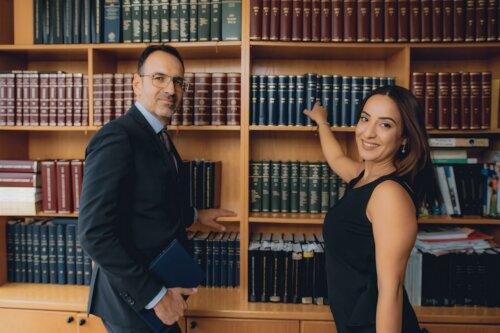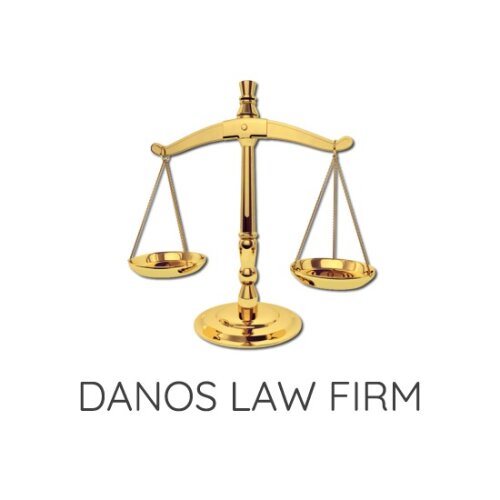Best Collaborative Law Lawyers in Cyprus
Share your needs with us, get contacted by law firms.
Free. Takes 2 min.
Free Guide to Hiring a Family Lawyer
Or refine your search by selecting a city:
List of the best lawyers in Cyprus
About Collaborative Law in Cyprus
Collaborative Law in Cyprus is an innovative legal approach aimed at resolving disputes, particularly in the realm of family law, without going to court. It focuses on cooperation and problem-solving among the parties involved, rather than adversarial litigation. This approach involves the clients and their lawyers working as a team to reach a mutually agreeable settlement. As interest in alternative dispute resolution grows, the utilization of Collaborative Law in Cyprus has been gaining traction, providing a respectful and cost-effective way to handle conflicts.
Why You May Need a Lawyer
There are several situations where you might require legal assistance in Collaborative Law:
- Divorce or Separation: Collaborative Law can help couples negotiate the terms of their separation amicably.
- Child Custody and Support: Collaborative Law offers a platform to decide on arrangements concerning children in a less confrontational manner.
- Business Disputes: In cases where you wish to preserve business relationships, Collaborative Law can help find mutually beneficial solutions.
- Family Inheritance Conflicts: When dealing with inheritance issues, Collaborative Law can offer a platform for resolving differences without the strain of court proceedings.
Local Laws Overview
In Cyprus, Collaborative Law is regarded as a form of Alternative Dispute Resolution (ADR) and is influenced by the general principles governing ADR in the country. Key aspects include:
- Confidentiality: All discussions and documents exchanged during the collaborative process are confidential and cannot be used later in court if the process fails.
- Voluntary Participation: Both parties must voluntarily agree to engage in the collaborative process and commit to resolving the dispute outside of court.
- Neutral Experts: The use of neutral experts, such as financial advisors or child psychologists, may be encouraged to facilitate better decision-making.
- Collaborative Agreement: A formal agreement is generally signed at the beginning of the process, outlining each party's commitment to the process.
Frequently Asked Questions
What is the main goal of Collaborative Law?
The main goal of Collaborative Law is to resolve disputes amicably and efficiently without resorting to litigation, thereby saving time, money, and reducing the emotional stress associated with court battles.
Is Collaborative Law legally binding?
Yes, agreements reached through the Collaborative Law process can be made legally binding once they are finalized and signed by all parties involved.
What happens if the collaborative process fails?
If the process fails, parties can still pursue litigation; however, they will need to hire new lawyers, as those involved in the collaborative process are disqualified from representing their clients in court.
How long does a collaborative process take?
The timeline varies depending on the complexity of the issues and the willingness of the parties to reach an agreement. Generally, it can take less time than going through the court process.
How is Collaborative Law different from mediation?
In Collaborative Law, each party has a lawyer advocating for their interests all through the process, while mediation involves a neutral third party helping the disputing parties reach an agreement without legal representation.
Can Collaborative Law be used in other areas besides family law?
Yes, while it's commonly used in family law, Collaborative Law is also applicable in areas such as business disputes, employment disagreements, and other civil matters.
What qualifications should a collaborative lawyer have in Cyprus?
A collaborative lawyer should be a trained family lawyer with specific training in collaborative practice techniques and a deep understanding of conflict resolution methods.
Are collaborative lawyers expensive?
The costs can vary widely; however, Collaborative Law often proves more cost-effective compared to traditional litigation due to its focus on reaching quicker settlements.
Can I switch to Collaborative Law if my case is already in court?
Yes, parties can opt to suspend court proceedings and switch to Collaborative Law if both parties agree to it.
What should I prepare before entering a collaborative law process?
Parties should prepare by gathering all necessary documentation, being clear about their goals, and staying committed to open and honest communication throughout the process.
Additional Resources
For more information or assistance, consider reaching out to the following resources:
- Cyprus Bar Association: Offers guidance and information on finding qualified collaborative lawyers.
- Family Law Practitioners: Specialist law firms with expertise in collaborative family law.
- Mediation Centres: Some mediation centres may offer collaborative law services or can guide you to appropriate resources.
- Cyprus Ministry of Justice and Public Order: Provides oversight and resources related to dispute resolution in Cyprus.
Next Steps
If you are considering Collaborative Law, the following steps can help you proceed:
- Research: Gain a basic understanding of the process and its benefits.
- Consult with a Lawyer: Seek initial advice from a lawyer experienced in Collaborative Law to discuss your specific case.
- Decide on Participation: Ensure that all parties are willing to engage in the process voluntarily.
- Select the Right Professionals: Choose lawyers with collaborative law qualifications, and consider any neutral experts that might be beneficial to your case.
- Commit to the Process: Enter into the collaborative agreement, signifying mutual commitment to finding a resolution.
Lawzana helps you find the best lawyers and law firms in Cyprus through a curated and pre-screened list of qualified legal professionals. Our platform offers rankings and detailed profiles of attorneys and law firms, allowing you to compare based on practice areas, including Collaborative Law, experience, and client feedback.
Each profile includes a description of the firm's areas of practice, client reviews, team members and partners, year of establishment, spoken languages, office locations, contact information, social media presence, and any published articles or resources. Most firms on our platform speak English and are experienced in both local and international legal matters.
Get a quote from top-rated law firms in Cyprus — quickly, securely, and without unnecessary hassle.
Disclaimer:
The information provided on this page is for general informational purposes only and does not constitute legal advice. While we strive to ensure the accuracy and relevance of the content, legal information may change over time, and interpretations of the law can vary. You should always consult with a qualified legal professional for advice specific to your situation.
We disclaim all liability for actions taken or not taken based on the content of this page. If you believe any information is incorrect or outdated, please contact us, and we will review and update it where appropriate.
Browse collaborative law law firms by city in Cyprus
Refine your search by selecting a city.
















